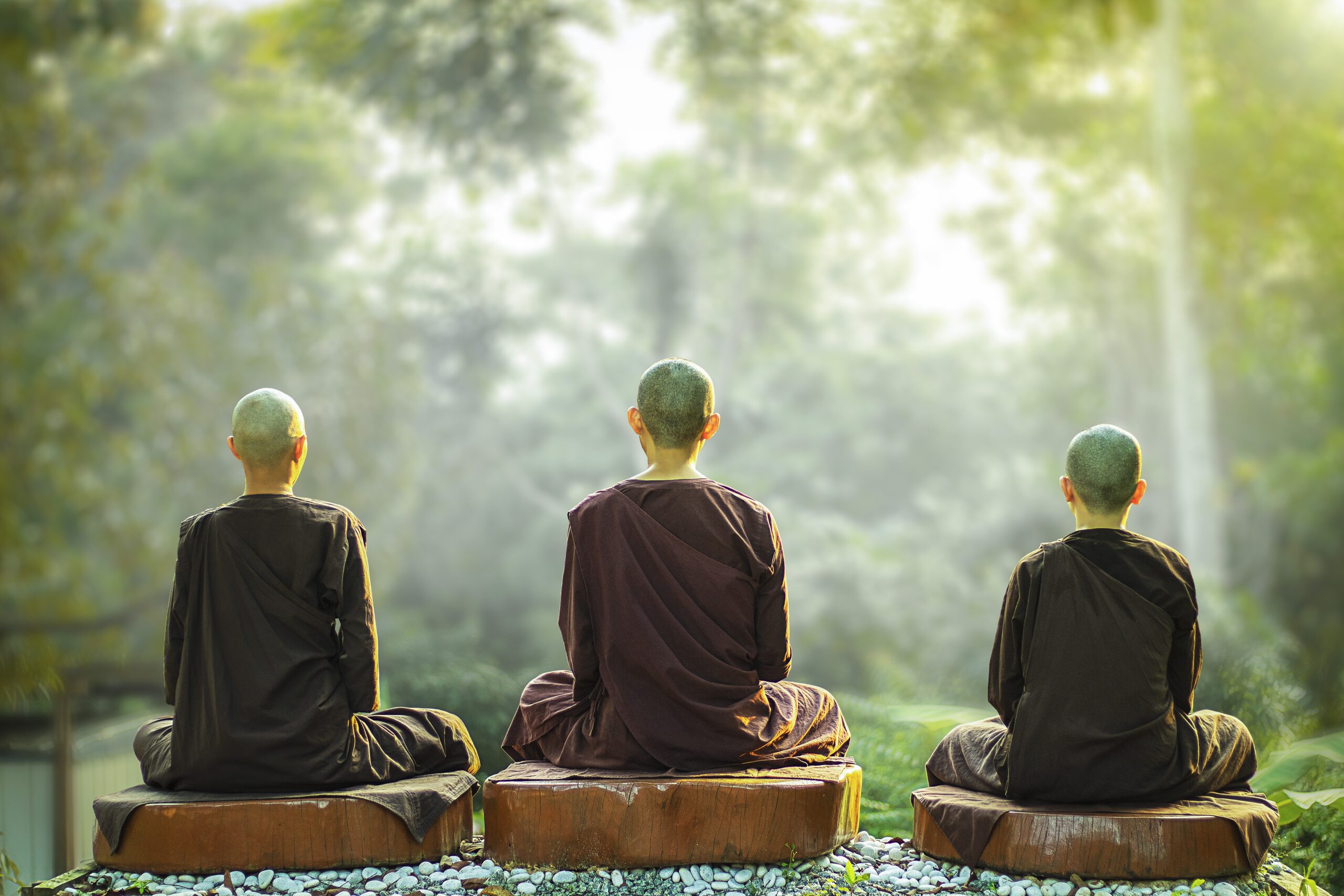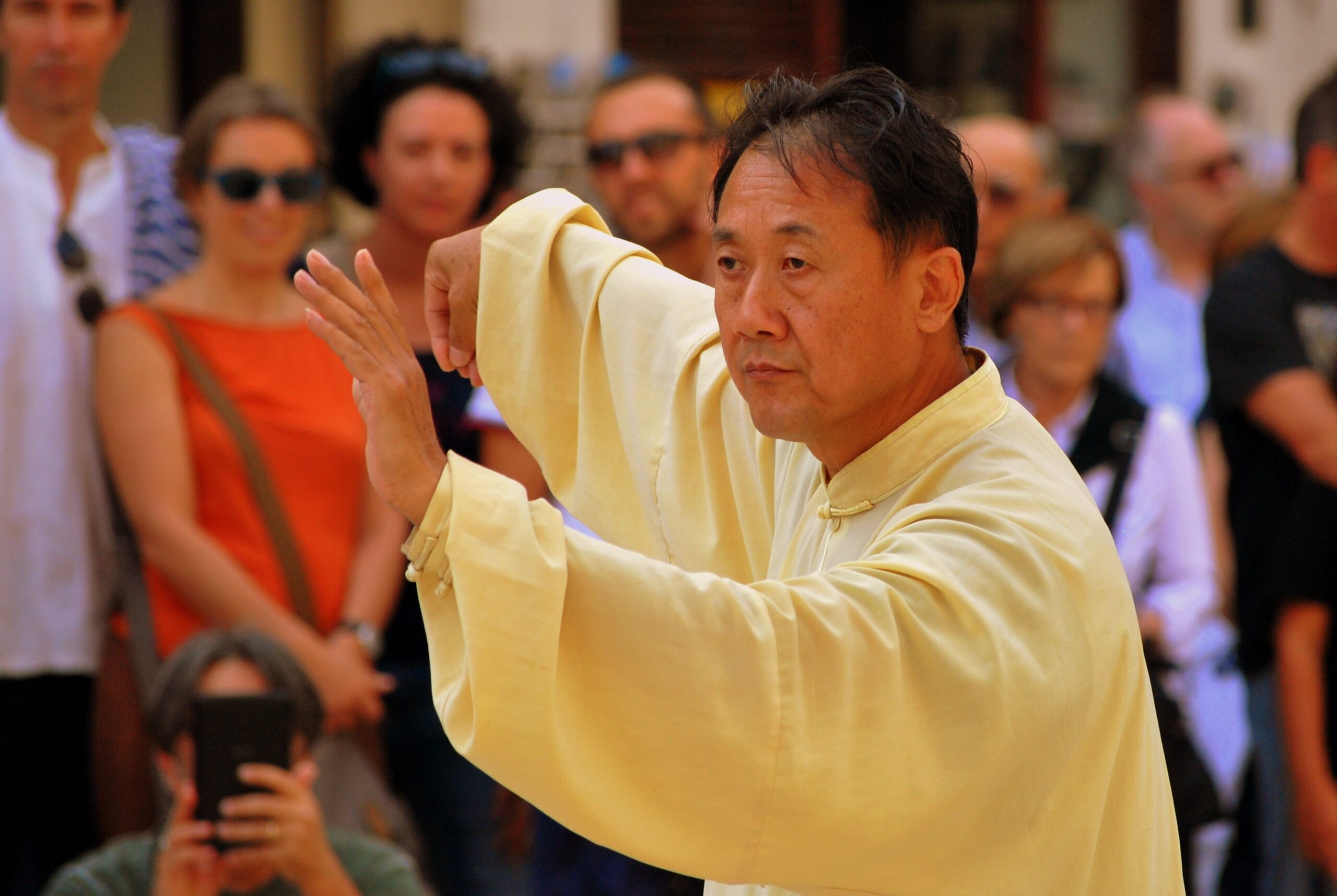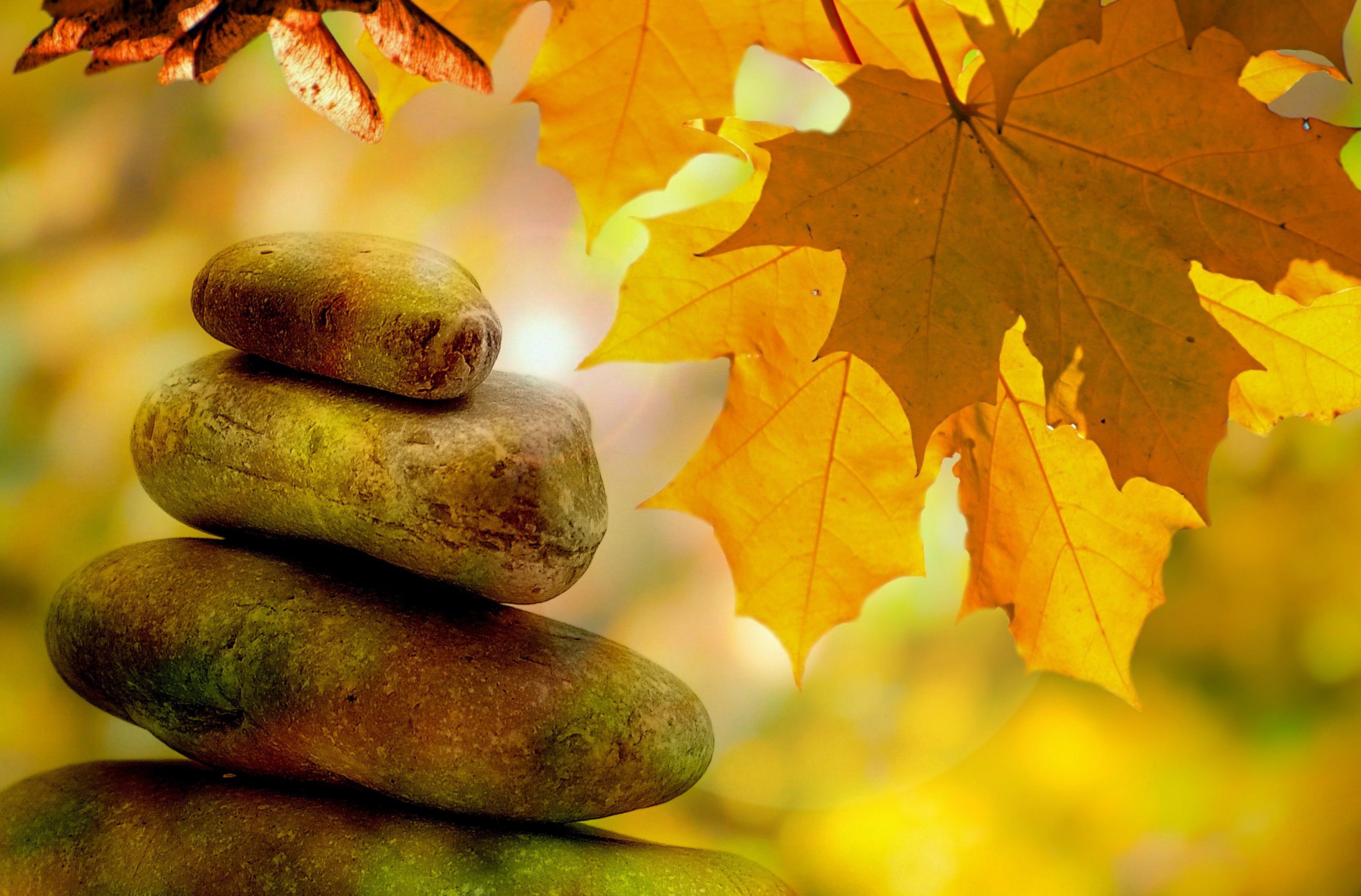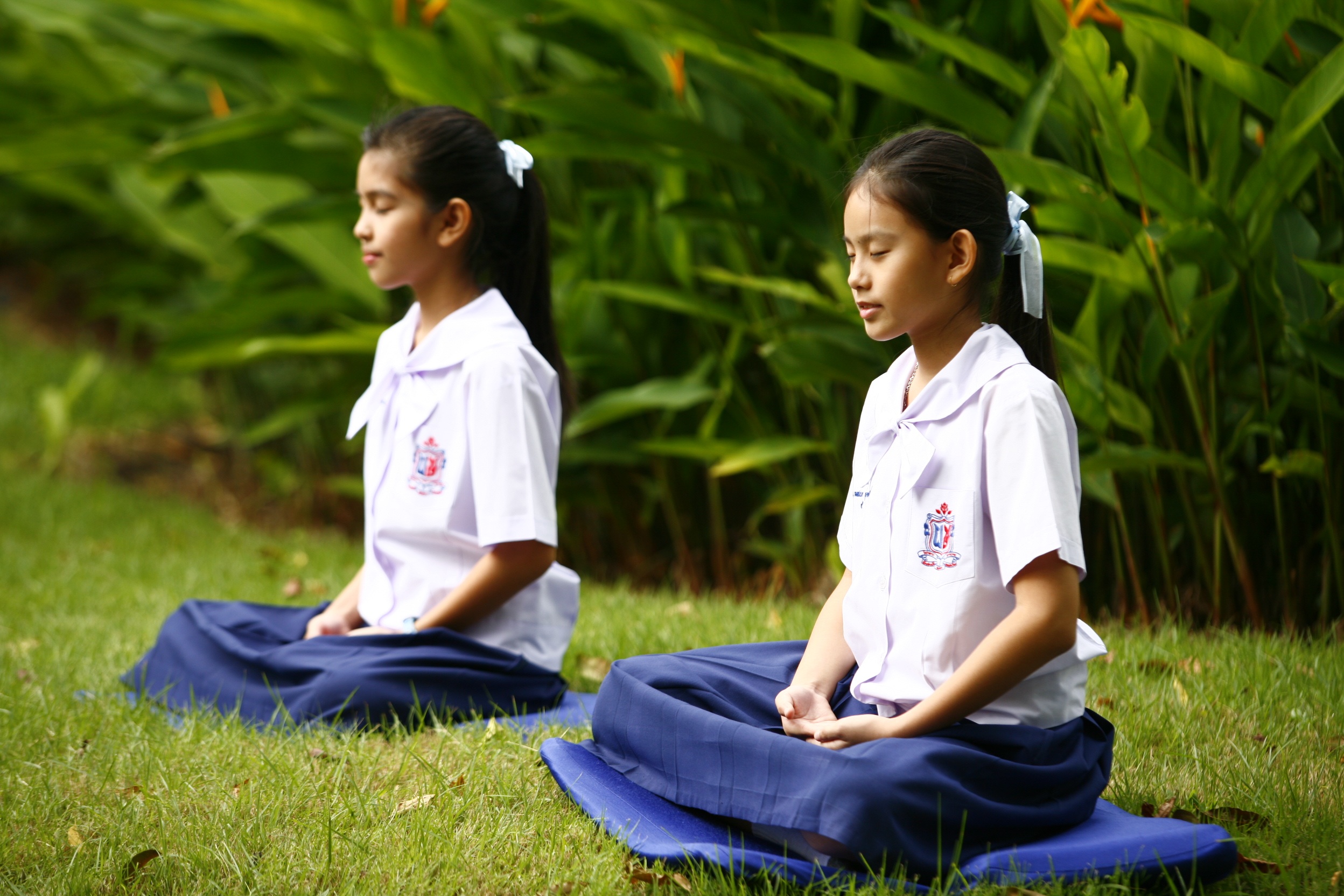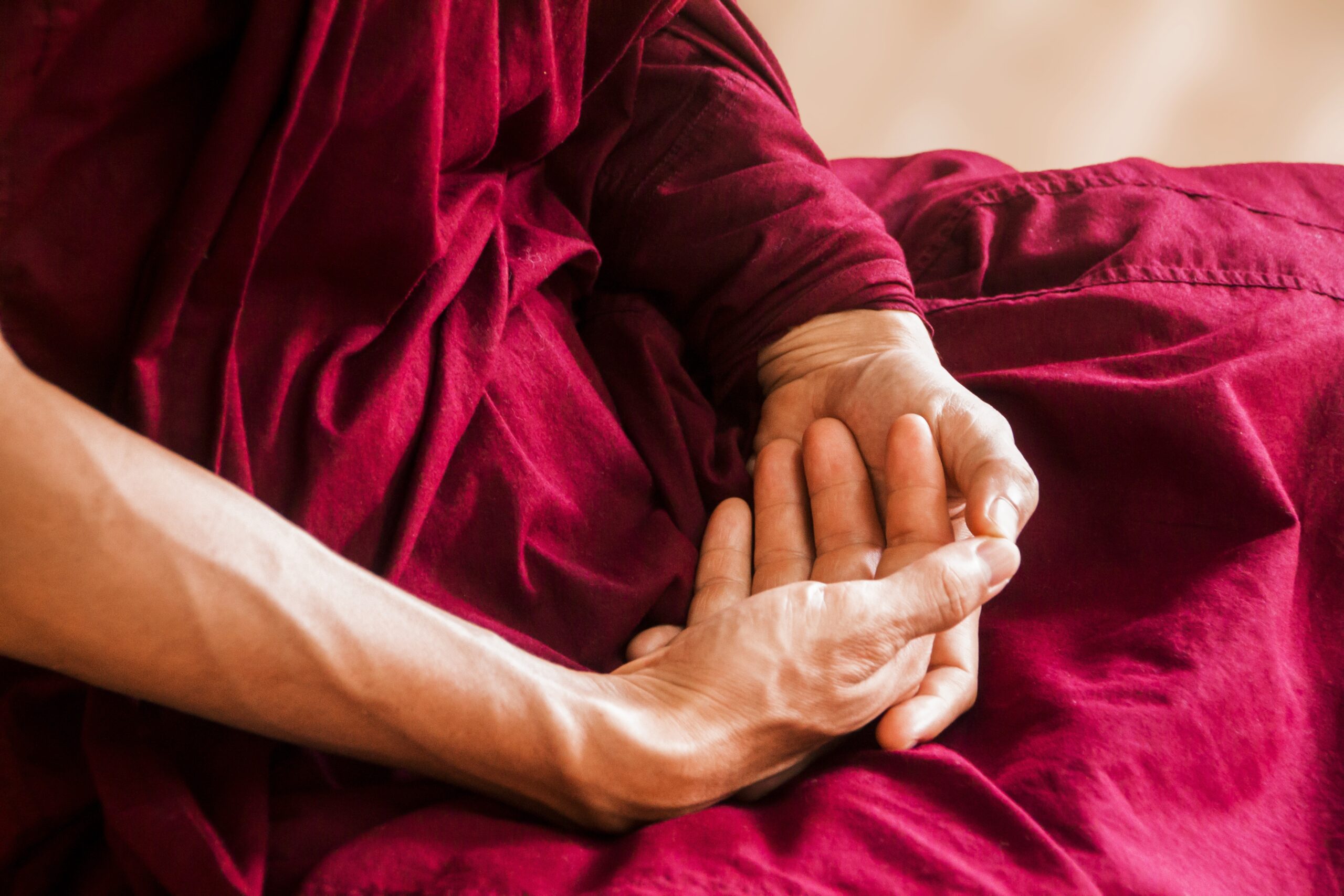Making the Most of Tai Chi Qigong
Stressful demands of today’s busy society makes it difficult to practice tai chi qigong/chi kung the way it was practiced traditionally.
Ancient masters viewed it not merely as a meditative exercise routinely practiced, only to be set aside and forgotten until the next session. Rather, it was a way of life, that they followed every minute of every day. That meant living and breathing qigong/chi kung every moment of consciousness.
This was the life I was raised, following in my master’s footsteps, training several hours a day in yogic breathing, qigong/chi kung exercises, and tai chi sparring, rising at five in the morning to meditate, and even practicing qigong/chi kung meditation in my sleep.
I thought it a matter of course and didn’t know any other way of learning.
Every day my master waited for me to come home from school to begin our day together. I followed him everywhere he went, listening to his lectures, practicing tai chi qigong under his supervision, watching him when he worked with other students, partaking of evening meals with him, and listening to his stories and lessons. (See My Personal Profile).
This went on for many years until I graduated from university and moved away from home, but even then, my master encouraged me to continue my training with other masters in China and Taiwan, and eventually on my own.
Of course, for most people, this kind of traditional tai chi qigong/chi kung lifestyle is not possible. The demands of work, school and family prevent us from devoting more than a tiny portion of our day to exercise, whether it be ten minutes or two hours.
So how can we make the most of tai chi qigong/chi kung meditation and exercise without compromising our training in the limited time we have? Here are some suggestions to which I advise students to adhere:
- The best time to practice tai chi qigong is a half hour after rising in the morning, between five and seven o’clock in the morning and between eleven and one o’clock at night. If the exercise is a dynamic one, such as tai chi chuan or Eighteen Postures of Tai Chi Qigong, you should not practice within the last couple hours before going to bed.
- Establish a daily routine that is consistent with your habits: Practice tai chi qigong/chi kung the same time and at the same location every day. Make sure when you practice that you are well rested and that your mind is free from all worries and needless distractions.
- Choose an open space, preferably with fresh air but no strong winds. The place should be quiet so that you will not be easily disturbed or distracted.
- Do not eat a heavy meal before practice. This will inhibit the vital chi energy from flowing. If you are hungry, eat a light meal or snack a half hour before practice, but if possible, abstain from eating.
- Wear loose comfortable clothing. Tight clothing restricts movement, blood circulation and the flow of vital chi energy. Also wear your clothing in layers. It is important to keep warm during practice, as the cold inhibits the flow of vital chi energy. As you begin to warm up, you can discard the extra layers of clothing.
- If the tai chi qigong/chi kung exercise requires a standing posture, lower your center of gravity. Do not shift or otherwise lose your balance. Practice rooting into your posture. Keep your head and trunk straight, your shoulders relaxed, chest slightly caved in, the knees not extending past your toes.
- Practice yogic breathing, resting your tongue at the roof of your mouth, against the frontal palate and ridge of your upper teeth. The tongue acts as a bridge for the vital chi energy to flow freely. In time, your glands will secrete more saliva and you will find it sweet tasting. This is because the vital chi is also contained in your saliva. Do not spit it out, but swallow it gently.
- Calm the mind and relax the body. Visualize the tension easing out of your muscles. Empty your mind of all extraneous thoughts, (see Meditation Techniques for more suggestions on ways to focus your concentration).
- As you empty your mind of thoughts, so should you empty your heart of desires and emotions.
cloud the mind and impede the flow of chi.
Therefore, visualize yourself as an empty vessel
that you fill with Tao, (Lao Tzu),
- Unless otherwise indicated, breathe deeply and slowly, using your abdominal muscles, rather than your chest, making sure to visualize the chi circulating along the meridians or pathways throughout your body.
- Visualization, intent and goal setting are components integral to developing the yi consciousness, an essential element to tai chi qigong and other meditative practices, so much so, that without them, a student would never be able to attain mastery of tai chi qigong/chi kung. Yet very few books or commercialized schools in the Western Hemisphere make mention of this fact. Below is a brief elucidation of the importance of visualization from my master’s book, The Secrets to Eternal Life: Tao Teh Chieng:
- Keep in mind that your movements should be slow and even. Tense jerky movements will prevent the chi energy from flowing smoothly and efficiently.
- Unless otherwise indicated, do not lock your joints. The joints are like gates that regulate the flow of chi energy. Locking the joints will slow down or inhibit its flow.
- Always practice the same tai chi qigong movements over and over again until you master them before continuing on with a new lesson. You will learn more quickly and master the movements more effectively, if you take the time to establish a strong foundation.
- After meditation, practice the Twelve Treasures or other tai chi qigong daoyin exercises to stimulate muscle tone, detoxification, and further blood and chi circulation. Massage the organs, limbs and extremities and apply the acupressure points.
- After practice, rest for a while before taking a shower, eating, or retiring to bed. Abstain from drinking cold drinks or taking a cold shower before or after practice. These can be injurious to the heart and inhibitive, even injurious to vital chi circulation.
Since tai chi qigong, particularly dynamic exercises such as tai chi chuan, invigorates both mind and body, it is also advisable to practice jinggong or quiescent meditation and/or Chi Calming Qigong, or rest a while before retiring to bed.
- Just like for the mind and the rest of the body, we practice qigong for the eyes as well: perform eye exercises to keep the eye muscles in shape and to teach them to relax. These exercises will improve your eyesight.
- Always supplement your qigong/chi kung exercises with a healthy lifestyle. Consume nutritious foods, supplemented by herbs and Chinese medicine, drink lots of fluids, practice qigong/chi kung massage and acupressure, get adequate sleep and try to practice equal amounts of jinggong or quiescent (i.e. still), as well as donggong or dynamic tai chi qigong meditation forms.
- If you have a cold, influenza, fever or similar debilitating disease, abstain from practicing tonifying qigong. In general, the purpose behind qigong exercises are either tonifying or detoxifying. Most will provide some of both benefits but when you are ill, you should avoid the exercises that target tonification. Tonifying qigong tonifies the chi, blood, and organs.
However, if you are flush with fever or other debilitating disease, your main interest should be to detoxify and remove toxins from your body.If you are ill, your body is focused on cleansing; tonifying exercises interfere with the detoxification process and will only serve to drain your body of needed energy that should be reserved for detoxification.
Like all other learning situations, it is important that you practice what you have learned inside and outside of the classroom. Depending on your medical condition and aptitude for learning, a minimum of twenty minutes of daily practice is required to see any significant improvement over time.As you progress, it is expected that you will gradually increase the amount of practice time spent daily.
Like everything else, tai chi qigong/chi kung cannot be mastered in one short session. Taking notes and videotaping can help to jog your memory of essential details. However you do it, it is always best to review the essentials of what you’ve recently learned in preparation for the next lesson.
- If you are learning from a master or instructor, it lies in your best interests to follow any orders or advice given. If you are in doubt, you should seek clarification. When monitored by a qualified instructor on a regular basis, tai chi qigong/chi kung is a very safe and healthy exercise to follow. However, when taught or practiced incorrectly, some exercises, especially at the advanced level, can be very harmful, dangerous and even potentially fatal.You should always take the necessary precautions against unauthorized instruction and demonstration. Instruction should take place only with a qualified instructor.
Most of the lessons I offer on this website are quite safe to practice without the help of a teacher to monitor your progress. However, there are a stipulated few that should be practiced under supervision.
Please practice the exercises with qualified supervision where I have suggested, and read the Disclaimer before attempting any of the exercises on this website. These warnings are placed there for a reason!
Remember, only a qualified instructor can transmit the essence of tai chi qigong/chi kung and impart to the student a proper foundation through correct instruction. Choose wisely and practice with care. It can be admittedly challenging to find a suitable instructor, so if you don’t have a support system in place, contact me and I will do my best to answer all your questions.
- Keep a daily or weekly journal, recording your learning experiences. At times, you may experience learning plateaus or feel that you have not made sufficient progress in your learning.By reviewing what you have learned, you are not only able to keep track of vital information, but also see how far you have come since your first attempts, and to learn from your mistakes, as well as from your successes.
- Share ideas with other fellow students and offer each other mutual support and help. Personal development through any discipline can be a very lonely journey. By being supportive of each other’s progress, everyone contributes to each individual’s success.
Since the chi energy is more easily generated in large student numbers, tai chi qigong/chi kung meditation and exercises are best practiced in groups, (especially if students’ chi is cultivated at advanced levels), the larger the better.
- Work with other students, but avoid unfair comparisons. Since every student progresses at his/her own individual rate, depending on many factors such as medical condition, aptitude, degree of effort and investment in practice time, it would be unfair for any student to attempt to compare his/her own progress to that of others.
Keep track of your own individual progress and learning, but don’t be discouraged if someone else you know is progressing faster, or getting “more results” than you.
I still recall when I was only an adolescent among middle-aged students in a senior class and the slowest progressing student. Yet despite my immaturity, my master saw something in me that no one else did.
In the end, out of about 30 senior students only about five of us of continued to train regularly and teach tai chi qigong/chi kung.
Progress is not measured in results, but how you persist over time. The more I train, the less I feel I know, and the farther I feel I still have to go.
Most would agree that the senior students in our class probably know far more than most so-called “masters” in the Western Hemisphere; however, in my master and his peers’ eyes, we still have a long way to go.
By standards measured by traditional masters, we are nothing to boast about. Who am I compared to the real masters of old?
That is why I find it amusing that commercialized schools often boast of self-styled martial arts “masters” and “senseis” that impress only those who truly know little of the traditional arts.
(See The Martial Arts Business Industry, My Personal Experience with the Controversial Falun Gong, Training the Traditional Way, Master-Disciple Relationship and Choosing the Right Master/Instructor)
In every class, including mine and my master’s, there are always students who, after only a few months or so of training exclaim how great their chi is or how advanced they have become.
Out of these are also those who join the ranks of self-proclaimed teachers, gurus and “experts”, each one competing to outbid the other in so-called abilities.
Tai chi qigong/chi kung masters are admittedly able to perform phenomenal feats of strength and psychic power. But these are merely side effects and not the end goal, if there is truly any.
Do not be tempted to stray from the path by fame, money or ambition. Keep to your tai chi qigong practice and do not measure your progress with “observable results.”
Forget those who seek to compete for these material results, and you will make more progress in tai chi qigong than they can accomplish in a lifetime.
_________________________________
Footnotes:*Victor Shim, The Secrets of Eternal Life: Tao Teh Chieng, (Edmonton: Aurora Printing & Graphics, 1985, second edition), p. 130-131.
_________________________________
